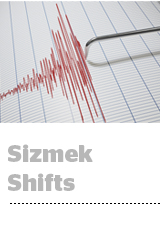 Sizmek needs another investment round after facing setbacks and revenue shortfalls in 2018, and it won’t find new funding with Vector Capital, the firm that backed the acquisitions and integration of Sizmek and Rocket Fuel.
Sizmek needs another investment round after facing setbacks and revenue shortfalls in 2018, and it won’t find new funding with Vector Capital, the firm that backed the acquisitions and integration of Sizmek and Rocket Fuel.
Sizmek is working with Cerberus Capital Management, the PE firm that financed the debt on Vector’s deal for Rocket Fuel and has taken equity in Sizmek, to find a new strategic investor. Vector initially owned Sizmek and Rocket Fuel outright, but since Sizmek is losing money and Vector isn’t willing to invest more, Cerberus’s debt stake has steadily turned into equity.
Vector may be cooling on ad tech in general. Alex Beregovsky, the managing director who oversaw the Sizmek and Rocket Fuel deals, left the company this year. And last December, Vector sold its other ad tech investment, the audio marketplace Triton Digital, to E.W. Scripps for $150 million.
Cerberus has deeper pockets, but is looking for a new strategic partner, likely another PE firm, to invest and provide more working knowledge in the space, according to sources with knowledge of the situation.
If Cerberus doesn’t find a new co-backer for Sizmek and isn’t willing to invest on its own, it will have to sell the company.
Initially, Sizmek hoped to use 2019 to stabilize its business with flat or small growth, resetting annual financials and providing more time to integrate with Rocket Fuel, according to two people with knowledge of the strategy. But the PE investors and Sizmek leadership adjusted that modest goal and now demand a higher-growth benchmark, because flat growth won’t cover infrastructure and operational costs.
Sizmek missed its 2018 revenue expectations because its ad server business lost clients, including Chrysler, Chase and Procter & Gamble, and because the dwindling insertion order business Sizmek inherited when it acquired Rocket Fuel completely evaporated when it moved to a 100% transparent programmatic approach.
The loss of Rocket Fuel’s IO revenue stream was painful because IO-based campaigns had high profit margins. But losing the managed service revenue was a one-time blow, and it helped trim headcount and service costs. Ideally, after losing the IO business, Sizmek could steady its revenue and resume growth.
But Sizmek faced delays last year in the roll-out of its new consolidated ad server, which had to integrate many overlapping products, like the PointRoll dynamic creative ad server, the StrikeAd mobile ad server, Sizmek’s legacy server and Rocket Fuel.
The new server picked up some business since it launched last summer, sources said, but hasn’t been in market long enough to offset losses from the year.
“An ad server account could take months, even a year, to change from one vendor to another,” said Victor Wong, founder and CEO of the ad server startup Thunder.
On the one hand, that helps cushion the ad server, because it doesn’t lose business all at once. But it also means Sizmek account losses that caused the 2018 revenue miss will still be coming off the books this year.
What’s next?
With Vector out and Cerberus reluctant to move forward alone, the intuitive next step is to sell Sizmek. Independent ad servers have new business opportunities now, as brands reconsider their first-party data strategies and relationships with Google. Even after an off year, Sizmek is one of only a few independent servers with meaningful adoption.
Direct competitors like Flashtalking or Adform would be happy to take those ad server accounts, and a deeper-pocketed company like Adobe could buy its way into the space.
Unfortunately, Sizmek’s many parts inflate its price for buyers that only want the ad server business or another specific asset, like its dynamic creative optimization tech or the Peer39 contextual targeting company. Vector’s unwillingness to spin out any subsidiaries is a reason its sales review didn’t close last year, despite interest, according to sources from Sizmek and from potential buyers.
Selling valuable assets off piecemeal would cripple the overall company, though, and Sizmek would have less leverage after each subsequent deal because it would lose attractive products and be forced to take unfavorable prices.
Selling the company as a whole would mean a much stronger return than separately selling off subsidiaries and the ad server business, according to sources with knowledge of the dealings.
But it could also take more time. And owning a consolidated demand-side tech stack wasn’t Cerberus’s vision. It just owned the debt. If the company doesn’t find a new backer or a price it likes for Sizmek, it is incentivized to recoup its stake as soon as possible, which could mean a fire sale.
This post was syndicated from Ad Exchanger.


More Stories
By the Book: How ‘The Fugitive’ Director and an Investigative Journalist Collaborated on 2024’s Timeliest Thriller
The Best Holiday Ads of 2024
The Year in Ratings: How the Major News Outlets Performed in 2024